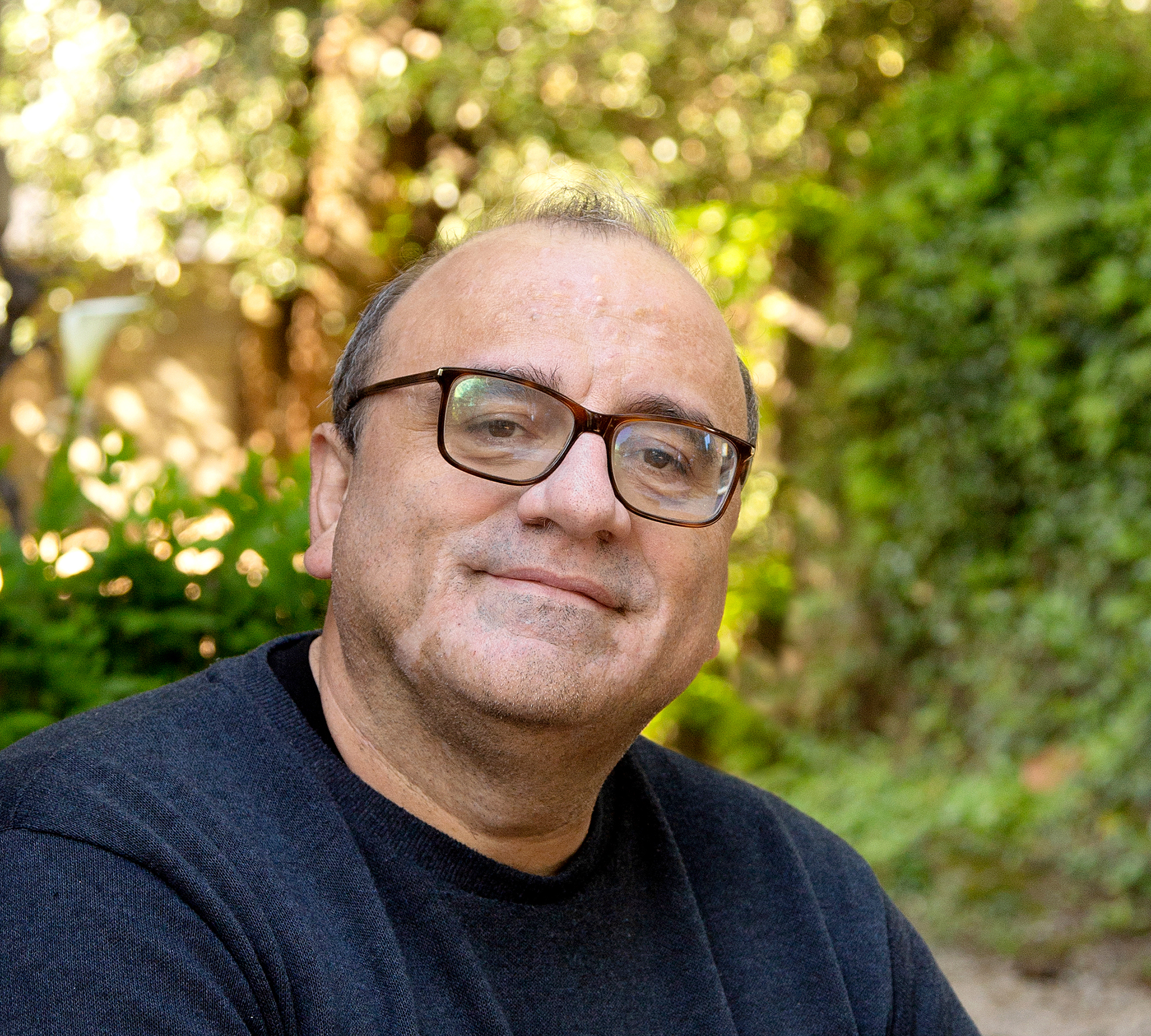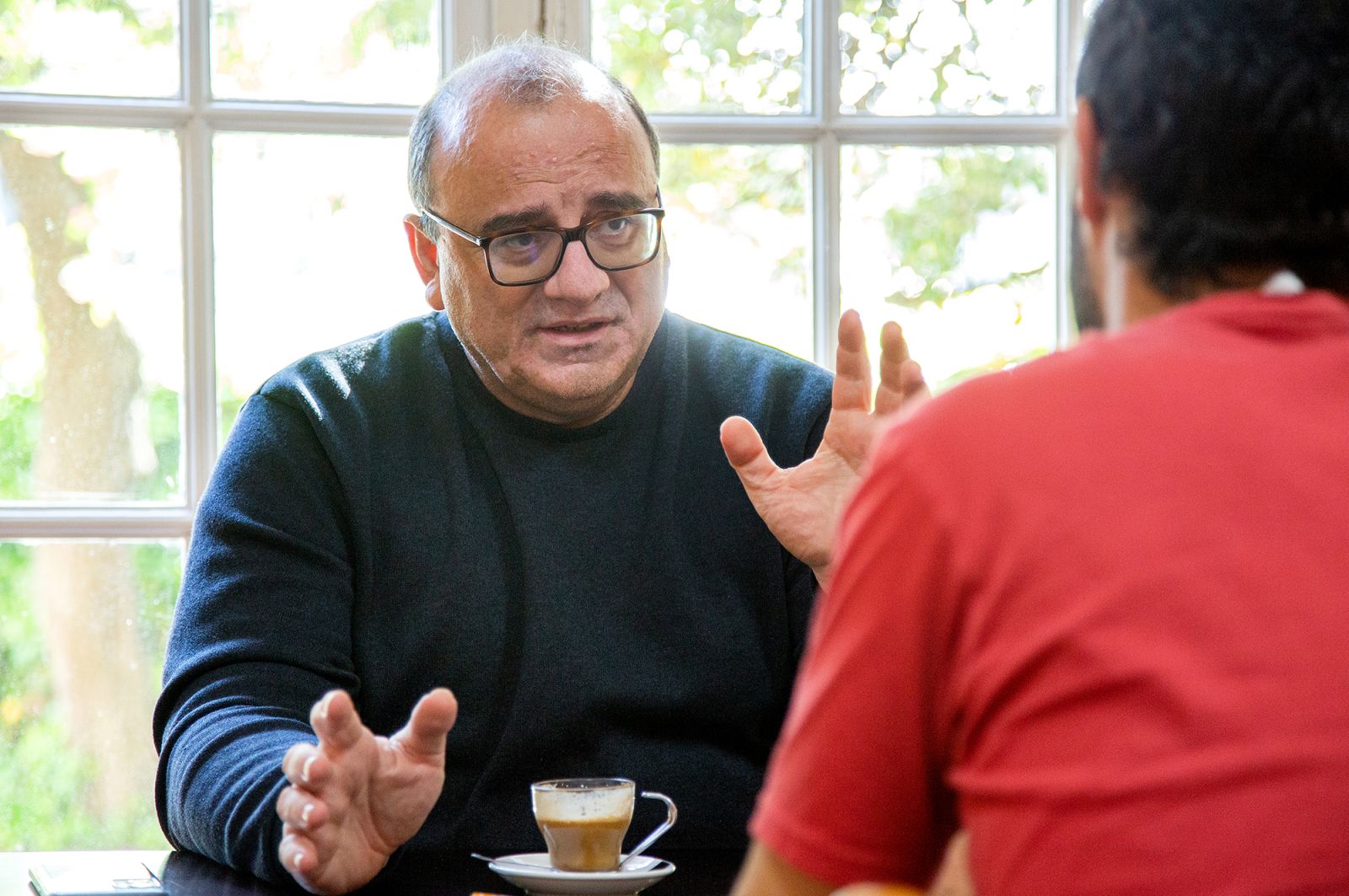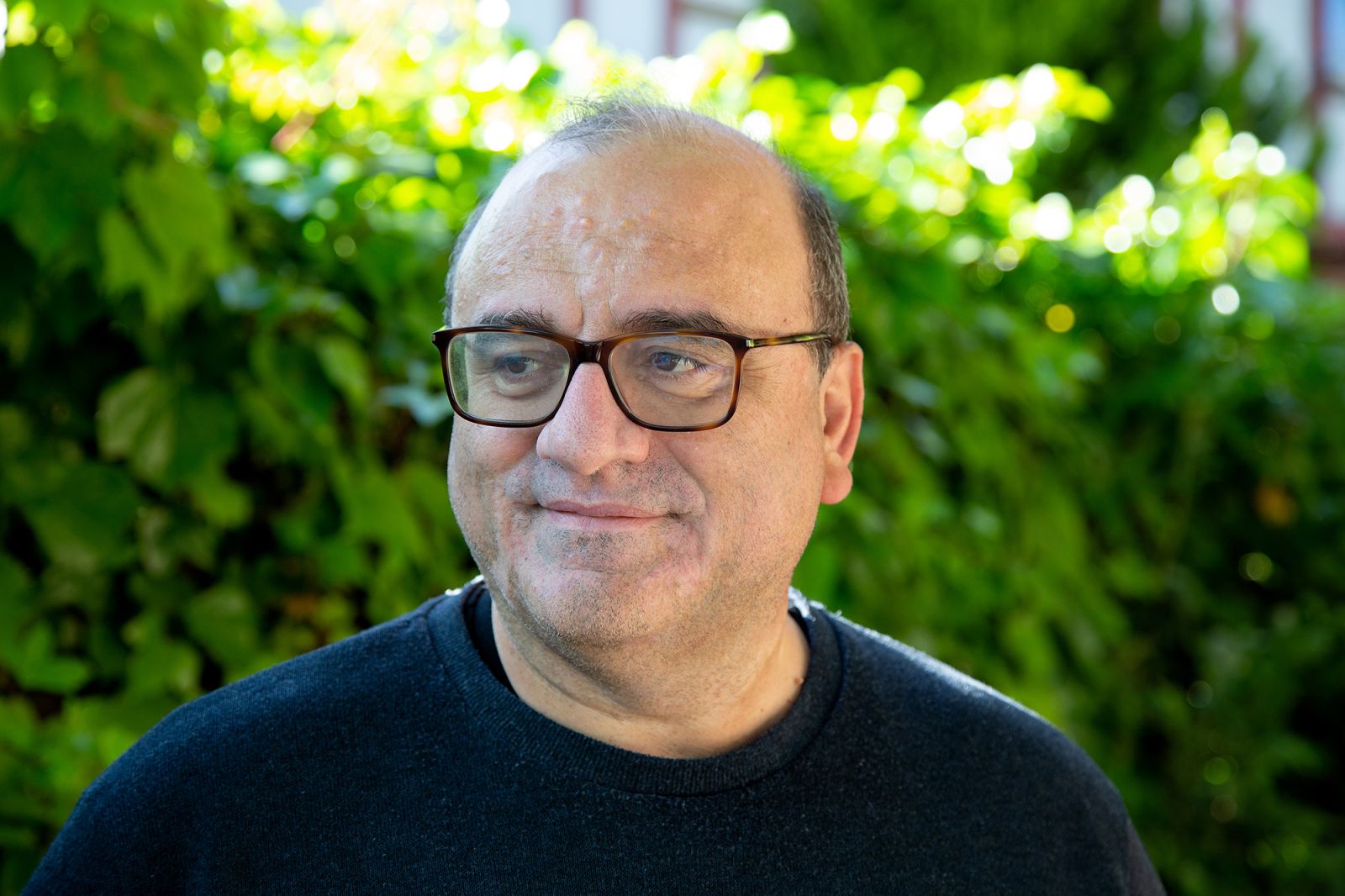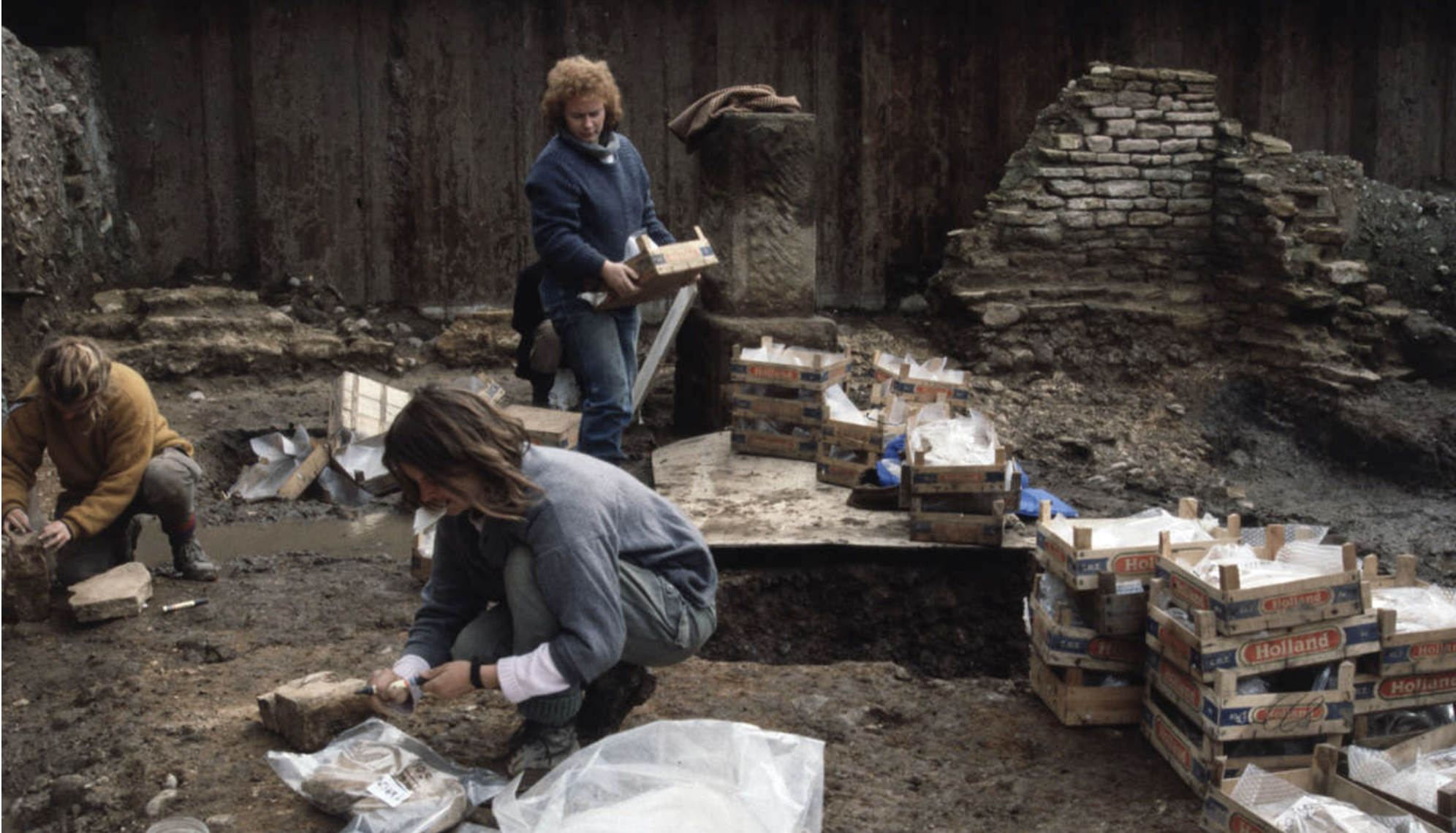"We will have to cut energy consumption by 80% in the coming decades"
- Antonio Turiel (León, 1970) CSIC’s physicist and researcher is one of the leading energy experts and discoverers. He has collected his theses in the blog The Oil Crasch, and lately in the books Petrocalipsis – recently published by Txalaparta in Euskera – and Sin energía. Towards the end of fossil fuels, there is a “sharp decline” in energy consumption. We have been with him in Donostia before talking to three hundred people in the Overseas Seminaries Park.

What does it mean when it says “strong descent”?
We are now entering, energy consumption will inevitably decline in the coming decades. This process is known and there are no technical solutions. Depletion of fossil fuels has led to a decline in production, sometimes slower and others faster.
When have we reached peak oil?
If we're talking about real oil, conventional crude, all of this started in 2005. Then 70 million barrels were produced every day and today 60 are produced. To compensate for this loss, non-greening oil, fracking, etc. were introduced. With this we have managed to delay the peak or peak of total oil until November 2018, but since then it has fallen by 3.1% and the forecast is to remain so. The International Energy Agency and the Organisation of Petroleum Exporting Countries have approved a decline until 2030.
But what are we talking about, a huge fall or a prolonged decline in time?
The two things. The fall will be important, but it will gradually go. It's going to be decades, and at the end of the process, we're going to see that we've had to drop 80 percent in energy consumption easily. What happens is that this decade is critical, because it's a turning point and because you'll see that traditional policies don't work, but what they do is they make the situation worse. This is already happening because distribution is not homogeneous; in Sri Lanka, for example, much more is being noticed.
"They are being presented as technical measures, but if you regulate legally and enforce cuts, you're implementing a rationing plan."
In this case there will also be differences between countries.
Yes, and Europe is not better positioned. That is why he has opted for green energy so desperately, hoping to find other resources. That speech is nonsense. Coal has hit high, natural gas is about to fall and uranium falls from top to bottom… But oil is at the base, and above all a very black thing, diesel.
In his book Petrokalipsia says that oil is seen as something “magical” with a lot of energy inside it. Is it about replacing this magic with fusion, green hydrogen, etc?
Coal also stores a lot of energy. But oil is liquid and easy to walk. We're used to things going fast. At Petrokalipsia, I make the comparison, do you know how much energy is in the one-liter gas? The same as a fit person works 108 hours. With a liter of petrol a normal car can travel between 10 and 15 kilometers… Imagine pushing you into that car.
Look, I was talking about hydrogen before. It's not a source of energy, it's a vector, but good. It has no energy density of oil. To be used in machines, it has to be compressed and cooled to -40 degrees, its losses in production and processing are enormous and ultimately works six times less than oil for a car. Old shit. We've become accustomed to thinking that high-energy density fuels are normal when they're an exception.
What's going on with Diesel? Why is it so special?
Diesel is the blood of the system. Trucks, heavy machinery, excavators, mining transports… run with diesel. And like other fuels, they're not as good as diesel, it's the one that falls the most. It was in 2015 that it reached its peak, with variations until 2018, but now it has fallen by 15% and is going to get worse. Transport and mining are affecting a great deal, but above all we must be concerned about what is happening with agriculture, because the lack of diesel has increased agricultural production and there are fewer fertilising substances. Add to this the drought… I don’t know how you are here, but where I live in Catalonia, in Figueres, we’ve already started with water cuts.

You often talk about rationing. Does that come to us?
Although this is not to be mentioned, Governments are taking steps in that direction. A 15% reduction in gas consumption in Europe was agreed in July. Thanks to the industrial stop it got so low, and it was closed by a lot of companies of brick, ceramic and glass that use gas in Valencia, for example. Then, in September, they agreed to reduce electricity consumption by 10% and have achieved it. I assume that Euskal Herria was going to feel like an industrialised space; at least in Europe, the industry has been a food hub. And now the European Commission is proposing a further 11.3% drop by 2030. Some countries are taking very tough measures: In the French state, it is said that by 2025 they have to reduce energy consumption by 10% and by 2050 by 40%; in the German case, the law is being debated to reduce consumption by 26.5%… These are huge figures and will have economic consequences. All these measures are basically rationing.
Not to say growth…
They don't use the word growth because it's a taboo. They are being presented as technical measures and that gives me more rage. If you regulate and legally enforce these restrictions, you're setting up a rationing plan. It's saying who can consume and how much they can consume. And if you distribute consumption proportionally, that means that all things matter to you. There is a vision of society, a political model. It is very important to understand that all rationing is political. In the end, you'll have to decide what's most important, the neighborhood store or Amazon.
It says that in the end we will have to lower consumption by 80%. Should the remaining part be renewable?
Necessarily. But the model being proposed for the transition of renewables, called REI, has some limitations. One of them is the existence of a maximum amount of usable energy. We do not know how much it is and there are debates, but we are now seeing that when a lot of wind turbines have been installed in the North Sea, the wind potential has decreased by 20%, because they interact.
"The problem with renewables is that they depend on fossil fuels. Most wind turbine companies will go bankrupt."
What does that mean, that we also spend the wind?
Wind energy is limited. When you put lots of mills, they can produce a forestry effect. And when the wind can't go through the forest, what does it do? It surrounds it. However, this limit is not the most serious, as there can still be large energy production.
What other limitations do renewables have?
Firstly, the lack of material. A lot of material is used and there is not enough for the whole planet to be transferred. And it's important to make entire planets, not just the United States, Europe or Japan, as the International Energy Agency drives, because if the countries that supply those materials to us are going to lose, I don't know where we're going to get lithium and cobalt and all those things that are needed. Moreover, these systems have a life cycle and once completed they must be replaced by new materials.
There is a boom in wind debates in Euskal Herria. We are told that the present mills will be bigger but more efficient, they will occupy less soil…
Here are many promises and very few realities. The problem with renewables is that they depend on fossil fuels. No one has yet created wind turbines or photovoltaic plates without fuel. Many authors claim that they are actually extensions of fossil fuels. This affects companies that generate wind turbines. Last year the five major global companies suffered huge losses: Vestas lost 1.5 billion dollars, Clenbu-Gamesa 2,000 million dollars, General Electric 2.2 billion… They have problems with aluminum and steel because the material is late or not enough.
And how do they hold?
At the moment they are financed by the banks, but they are obviously going to ask for a viability plan, and most of these companies will go bankrupt. We're creating giants with mud legs. Some of last year's losses were due to the outbreak of some 5 MW wind turbines. There were not many, perhaps 0.05%, but these failures were not expected and had to review all wind turbines. They're desperate. The other day I was with a person who worked at Vestas and told me they don't know what to do. They say they'll build 10 or 15 MW monsters when they haven't yet mastered 5 MW engineering. It's part of the typical escape from capitalism.
Now I'm thinking about concrete, we don't know how long it will last.
Reinforced concrete also collapses, but Antonio Aretxabala explains it better.
Our authorities say that with renewable infrastructures we will have more energy sovereignty.
The argument of energy sovereignty is also used in Catalonia. But how will you achieve that miracle? Only 20% of the energy we consume comes through electricity, because some of the energy is impossible to electrify. Moreover, it is paradoxical that electricity consumption has been declining since 2008. We're trying to put a lot of electricity when electricity comes out of us.
And why is electricity consumption going down?
Mainly by relocation, companies are the main consumers of electricity. Performance has also improved, but household consumption has increased. Jevons' paradox is that if you generate more efficient systems to harness electricity, like LEDs, you end up putting more light instead of less.
Can today's technologies not reuse all of that electricity?
What are these technologies? Electric car? People increasingly believe less in this because they have seen what they are asking: it is very expensive, it has little performance and, as it happens to renewables, it is dependent on very scarce materials (lithium, manganese, cobalt, nickel…). You can't make 1.4 billion electric cars on the planet, as there are now internal combustion engines. It is obvious that the car will only be something within the reach of a minority.

What do you think the mobility of the future will be?
In Sitges we held an international congress, we spoke Catalan, but I swear it was international… [laughter]. At a round table I spoke with the director of the Barcelona Metropolitan Transport Authority and with members of different companies. It is clear that the future model will be the provision of mobility services. People will not have a car, they will use rentals such as car sharing. It is said that 96% of the time cars are parked and occupy a lot of space. The future will be to offer these services and combine them with public transport. And automotive companies are getting ready for it.
Here in Pamplona, Volkswagen says it will make electric cars.
Because this is running out. The automotive industry knows that it will shrink. They say they'll get out of the stock market because they feel penalized and they go straight to private investors. But what they're recognizing is that their capital needs will be lower. An expert who writes in my blog said that the plan A of these companies is mass production of electric cars and that plan B is the 95% reduction. That's where we go.
He has made it clear to the energy crisis that there is no technical solution, but perhaps sociological?
Clearly. We have to make a change. There are scientific studies that say that we can maintain the current standard of living by consuming one-tenth of what we consume now. A different life model is needed, but with the same or better quality of food, education, health and work. And all over the planet. But then we cannot continue with an economic system based on growth, which is the basis of all the problems. All environmental problems are there. Technically we know what we should do to keep what we really care about. What we don't know is technically what to do to maintain this capitalist system based on infinite growth.
York (Ingalaterra), K.o. II. mendea. Eboracum erromatar hirian hainbat egitura eta etxe eraiki zituzten. Besteak beste, egungo Wellington Rowen harrizko eraikin bat egin zuten eta Queen’s Hotela dagoen tokitik igarotzen zen harresian arku bat jarri zuten. Bi aztarnategiak... [+]















